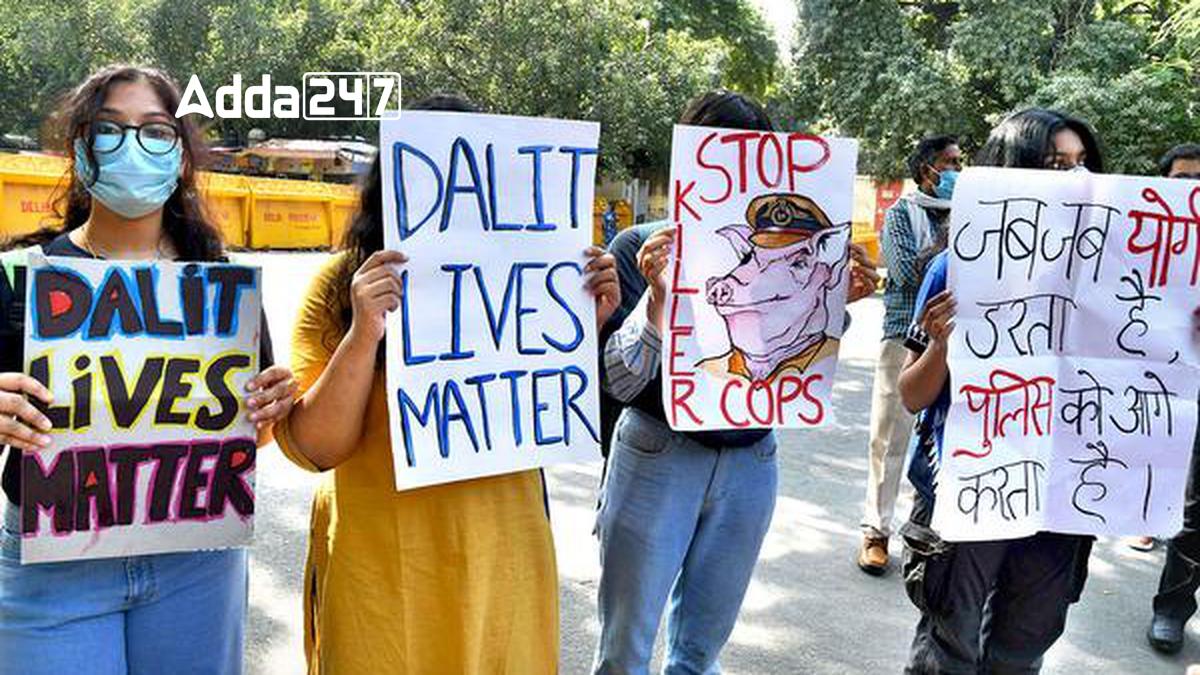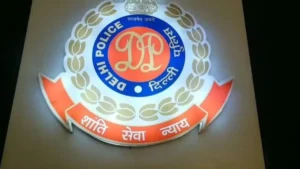A recent government report highlights the alarming rise in atrocities against Dalits, officially known as Scheduled Castes (SCs), in India. Of the 51,656 cases registered under the Scheduled Castes and Scheduled Tribes (Prevention of Atrocities) Act in 2022, Uttar Pradesh accounted for the highest percentage at 23.78% with 12,287 cases, followed by Rajasthan with 8,651 cases (16.75%) and Madhya Pradesh with 7,732 cases (14.97%). Notably, 97.7% of all reported atrocities against SCs occurred in just 13 states, underscoring a concentrated issue in these regions. Additionally, Madhya Pradesh led in atrocities against Scheduled Tribes (STs) with 2,979 cases (30.61%).
Key Findings on Atrocities Against SCs and STs (2022)
- Dalits: The report reveals that the majority of atrocities against SCs were reported from Uttar Pradesh, Rajasthan, and Madhya Pradesh.
- ST Cases: Similarly, atrocities against STs were concentrated in 13 states, with Madhya Pradesh and Rajasthan again leading in reported cases.
- Conviction Rates: Alarmingly, the conviction rate under the Act has dropped from 39.2% in 2020 to 32.4% in 2022, indicating systemic challenges in achieving justice for victims.
Who are Dalits?
Dalits, or Scheduled Castes, are a historically marginalized group in India, often subjected to severe discrimination and social exclusion. Constitutional provisions are in place to safeguard their rights, including:
- Article 15(1): Prohibits discrimination based on religion, race, caste, sex, or place of birth.
- Article 17: Abolishes untouchability.
- Article 23: Prohibits forced labor.
- Articles 16(4) & 16(5): Provide for reservations in public services.
- Article 21: Guarantees the right to life and liberty.
- Article 335: Ensures representation of SCs and STs in state services.
Scheduled Castes and Scheduled Tribes (Prevention of Atrocities) Act
This Act was enacted to prevent atrocities against SCs and STs, providing stronger legal recourse and ensuring that offences are tried in special courts for expedited justice. Key amendments include:
- 2015 Amendment: Introduced protections for SC/ST women against sexual harassment.
- 2019 Amendment: Restored provisions for immediate arrests without prior sanction, following a Supreme Court judgement that imposed procedural safeguards.
Persisting Challenges in Implementation
- Declining Conviction Rates: A significant barrier to justice, along with delayed investigations.
- Inadequate Special Courts: Only 194 out of 498 districts across 14 states have established special courts, hampering timely trials.
- Recognition of Atrocity-Prone Areas: Some states, like Uttar Pradesh, report no identified atrocity-prone areas despite high case numbers.
- Efficacy of SC/ST Protection Cells: Their effectiveness varies across states, limiting their impact.
Way Forward
To combat these challenges, several strategies can be employed
- Strengthen Special Courts: Increase the establishment of special courts to ensure faster trials.
- Improve Conviction Rates: Enhance investigation processes and address existing legal gaps.
- Identify Atrocity-Prone Areas: States must recognize and address regions with high rates of atrocities for targeted interventions.
- Awareness and Sensitization: Conduct campaigns to prevent atrocities and ensure better enforcement of the SC/ST Act, fostering a more inclusive society.




 Jharkhand Budget 2026-27: ₹1.58 Lakh Cro...
Jharkhand Budget 2026-27: ₹1.58 Lakh Cro...
 Can Rural Women Save Tigers? Palamu’s Va...
Can Rural Women Save Tigers? Palamu’s Va...
 Big Boost for Ex-Agniveers: 20% Delhi Po...
Big Boost for Ex-Agniveers: 20% Delhi Po...








